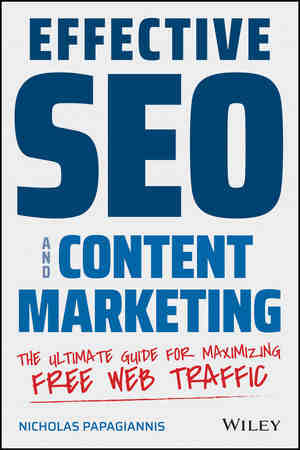SEO can be an expensive investment, so naturally you would want to do everything to get the most out of your investment. But, to do this, you need to be aware of common roadblocks that can get in the way of SEO success.
In my experience, nine things have historically prevented my clients from achieving results. Knowing about these obstacles can help you overcome them and prevent them from creeping into your campaign and derailing your progress.
1. Not defining campaign goals
Contents

If you don’t know what goals you’re trying to achieve through SEO, it’s impossible to measure success.
Likewise, if you’ve set goals but haven’t identified key performance indicators (KPIs), it’s hard to know how well you’ve achieved your campaign goals.
There’s nothing worse than having a number stuck in someone’s head (eg adding 100 new leads per month via SEO) and not finding out for months of effort and finding that you do not meet this expectation.
Defining goals and KPIs and communicating them to your team will help you run a successful campaign and achieve your results.
Get the daily newsletter search marketers rely on.
2. Lack of resources

Working with a lack of resources is extremely frustrating and can hamper your SEO success.
Below are some examples of resources you need to run a successful campaign and what can happen when you don’t have them.
3. Poor patience

SEO is a long term investment. It’s not something you can rush no matter how many resources you use.
Businesses get frustrated when they don’t see meaningful gains in the first few months. They may question their investment, decide to scale back, or quit altogether.
Don’t assume your SEO efforts aren’t working because your site isn’t at the top of search engine results pages in the first month. It takes time and constant effort.
Truth be told, even when an SEO specialist is working, it can take months or even years to see impressive results. As difficult as it may be, you need to be patient and trust the process.
4. Broad targeting

When working on an SEO campaign, it’s important to define the niche you want to target. This includes both your geographic market and your customer base.
Defining a niche at the start of your marketing campaign helps you attract your ideal customers to your unique corner of the market. Also, the more specific your niche is, the easier it will be to rank well.
Topic groups and keywords in your niche may get less traffic than more general groups, but they also convert better and are valuable for both targeting and tracking.
Now, I’m not suggesting that you choose a niche that has no search volume or is not closely related to your products or services. Look for one that is reasonable to target based on the competition and trends in your industry.
I realize it can be scary to choose a specific niche, especially if you want everyone to have the opportunity to find your site. But, you have to remember, defining a niche doesn’t mean you’ll be stuck in it forever. A niche must evolve over time. You can extend your reach later in your campaign when appropriate. You can develop topical expertise on a range of topics and niches.
5. Not thinking full-funnel

It’s important to remember that not all Google users are ready to convert when they find your page. You need to think about users at every stage of their journey, including initiation, research, comparison, transaction, and experience.
You can’t assume that every keyword or topic you target will convert. It’s just not realistic.
Instead, you should choose targets that relate to the language a potential user is using at each stage of the funnel and provide the right content and level of engagement they’re looking for during their brainstorming and their customer journey.
For example, if someone has just realized they need a new type of insurance for their business, they likely start their journey by researching their options and the types of companies that offer it. They aren’t necessarily ready to fill out a form or make a call and start a sales process until they do some research and start moving down the funnel.
6. Ignoring SERPs
Many people who are just starting their SEO journey don’t understand how a search engine results page (SERP) works. So they might not even realize that there are multiple sections on the SERPs and the organic results are usually buried under ads, news, map packs, featured snippets, etc.
It is essential to educate yourself on the anatomy of a SERP in order to understand the many ways your SEO efforts can impact the results presented to users.
Good SEO or areas adjacent to traditional search (i.e. local SEO) has the power to get you one of the coveted spots in Google’s search features (the map pack, snippets featured, reviews, etc.). But you may need to make some changes to your SEO strategy to optimize your pages to catch Google’s attention.
For example, schema markup can help tell Google that you want your reviews to appear under your Google listing. Likewise, having a Google business profile listing increases the likelihood of you appearing in the map pack results.
7. Bad partnerships
Nothing slows progress like a bad partnership. The wrong partner can prevent you from achieving your goals, whether it’s with vendors, agencies, freelancers, tools, writers, developers, or people who weigh in on strategy and implementation.
But, terminating a bad partnership is not always easy, especially if contracts are involved. Before you pull the plug, discuss your expectations and how this partnership doesn’t meet them. Then, develop an action plan to rectify the situation.
But ultimately, if your partnership isn’t salvageable, you need to end it. SEO is an investment, and it doesn’t pay off to work with someone who doesn’t help you achieve your goals.
Do all the due diligence possible on the front-end. I hope you don’t find yourself in this situation.
8. Disconnection from other marketing channels
As a marketer, nothing bothers me more than working with professionals who blindly think their marketing channel is the be all and end all to achieving their clients’ goals. In reality, marketing channels must synergize to obtain the best possible results. This comes from someone (me) who started my career deep in an SEO silo.
There is a time and a place for all marketing channels. For example, if you need fast results and want to skyrocket your listing to the top of Google, paid search is a great option. But long-term ad serving can be costly. This is where SEO comes in.
SEO takes time. It rarely gives first place results in the SERPs. So, working on your SEO while simultaneously running ads can attract a similar demographic until your site climbs higher in the organic rankings and ultimately the need for a paid ad for that service or product is gone. no longer necessary. Additionally, paid and organic can work well together in some cases depending on how the SERPs are structured for specific topics and queries.
Beyond that, we need to know that other channels such as social media, email, and other types of digital advertising can go a long way in working together and influencing the customer journey. Don’t put all the pressure on one channel if you can avoid it.
I encourage my clients to think about how they can leverage all marketing channels and disciplines, including SEO, paid search, content, UX/UI, video, etc., to get the best possible results.
9. Not enough attribution
Tracking data is important. After all, this is what shows the ROI of your SEO efforts. However, it is a mistake to only track SEO data and not to track business statistics and conversions related to your SEO efforts.
For example, if you have a service business like plumbing, you should expect to see an increase in keywords related to plumbing. However, that means little if you don’t also see an increase in conversions (i.e. calls or contact forms filled out).
With digital marketing, we have the power to know if it’s working and follow it through. It’s unacceptable in most cases to make assumptions when we can connect the dots from printing to conversion (and hopefully beyond).
Remove your SEO roadblocks
It’s normal and natural to want instant SEO results, but that’s usually not how it works. Achieving the SEO results you want takes time and consistent effort. Avoiding the pitfalls described in this article will help you get the most out of your SEO investment.
The opinions expressed in this article are those of the guest author and not necessarily Search Engine Land. Staff authors are listed here.
New on Search Engine Land
Corey Morris is a skilled marketing professional with over 15 years of experience developing award-winning, ROI-driving digital strategies for local and national brands. He was recently honored as the recipient of the KCDMA 2019 Marketer of the Year award.



